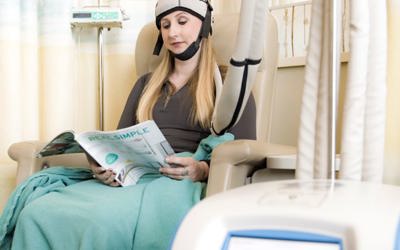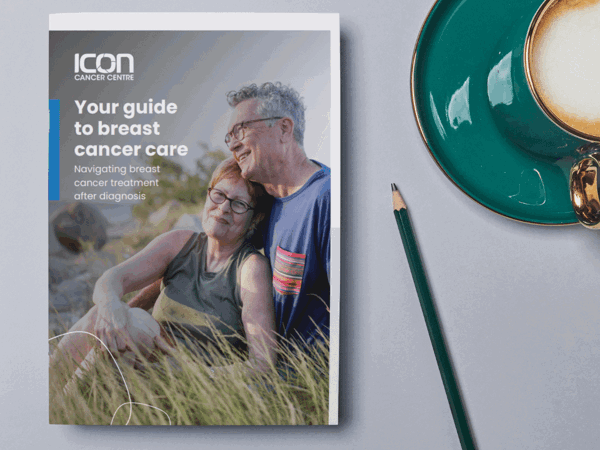
Everything you need to know about scalp cooling
It can help to know more about breast cancer and its effect on your life and those around you. While you wait to learn more about your diagnosis or treatment from your doctor, here are three things to keep in mind:
It’s important to remember that most people survive breast cancer, especially when it’s been diagnosed early. Breast cancer survival rates in Australia are high and they’re getting higher every year, but survival rates depend on a number of factors such as the type of breast cancer you have and whether it has spread to other parts of your body.
When detected at an early stage, the average five-year relative survival rate for breast cancer is 92%.
There are several types of breast cancer, which means there are also many different treatment options. After your breast cancer diagnosis, you may need further tests to identify the type of breast cancer you have and its stage (the extent that the cancer has grown and spread).
Your doctor will guide you through your diagnosis and will help you understand which treatments are most suitable for you, based on your specific needs.
The treatment you choose will also take into account your preferences and personal situation. You can ask your doctor as many questions as you like, and you will always have the option of getting a second opinion.
Breast cancer is the most common cancer in Australian women, affecting one in eight women throughout their lifetime. It can occur in young women under the age of forty, however breast cancer is mostly diagnosed in women over fifty years old. While it’s not as common, men can also get breast cancer and are typically diagnosed at the age of fifty or older.
You may be fortunate to have the support of friends and family to help you through this difficult time. There are also many excellent breast cancer support organisations that offer a range of services including financial assistance and counselling, alongside online and face-to-face breast cancer support groups that provide an opportunity to connect and share your experiences and feelings with others who are going through their own breast cancer journey.
Be informed, feel empowered. Our free guide will help you make decisions about your, or your loved ones, care.

Cancer treats us all differently, so don’t forget this is your journey and everyone’s journey is different. There are so many different types of breast cancer and therefore so many different treatments. There will be so many people giving advice based on their auntie’s neighbour’s friend’s daughter’s experience and so on. So don’t listen, don’t compare and don’t get swept up in others. Just listen to yourself and to your own doctors.
Ask as many questions as possible. There are no wrong questions so ask if you don’t understand the answer – ask for explanation. Always take a support person to appointments with you, because it can be hard to take all the information in by yourself. That way, if you feel confused, upset or overwhelmed, there is someone who can take notes of what is being said and what you need to do and where you need to go etc
Some friends will step forward, others will step back – be okay with that. Not everyone knows how to act around you, this doesn’t mean they don’t care.
Have a positive attitude and be gentle with yourself and your emotions. Keep focused and take it one day at a time
Don’t be afraid to accept help from people who offer and rest as much as you can
You might feel out of control, but make sure you take some time for yourself even if it’s five minutes drinking a cup of tea, sitting in the sunshine or calling a friend. Lean on those who love you – they really need you as much as you need them
Your feelings are valid. It’s okay to not feel okay, and when you feel like a cry, you cry. Don’t hold back!
Just take one day at a time. Some days will be better than others. Don’t feel like you have to be a super hero and keep doing all your normal chores. Don’t be afraid to confide in someone close to you when you are feeling scared and helpless. Family and friends can be your rock if you let them.
Be kind to yourself and try not to overthink things. Don’t be afraid of chemo and radiation wards. They can be fun, warm and friendly places filled with positive energy, uplifting friendships and good humour.
Make sure you understand all your choices.
Get an after-hours number because things don’t always go as expected.
Always drink lots of water and go for walks on your good days, it doesn’t have to be far.
The content on the Icon Cancer Centre website is for informational purposes only and should not be considered medical advice. It is not a substitute for consultation with a qualified medical practitioner. For personalised medical guidance, please consult with your GP or another qualified healthcare provider.

Discover our comprehensive collection of content designed to inform, support, and guide you through every aspect of cancer care. From the latest news and updates to personal patient experiences and educational resources, these materials provide valuable insights to help you better understand cancer, treatment options, and the journey ahead.